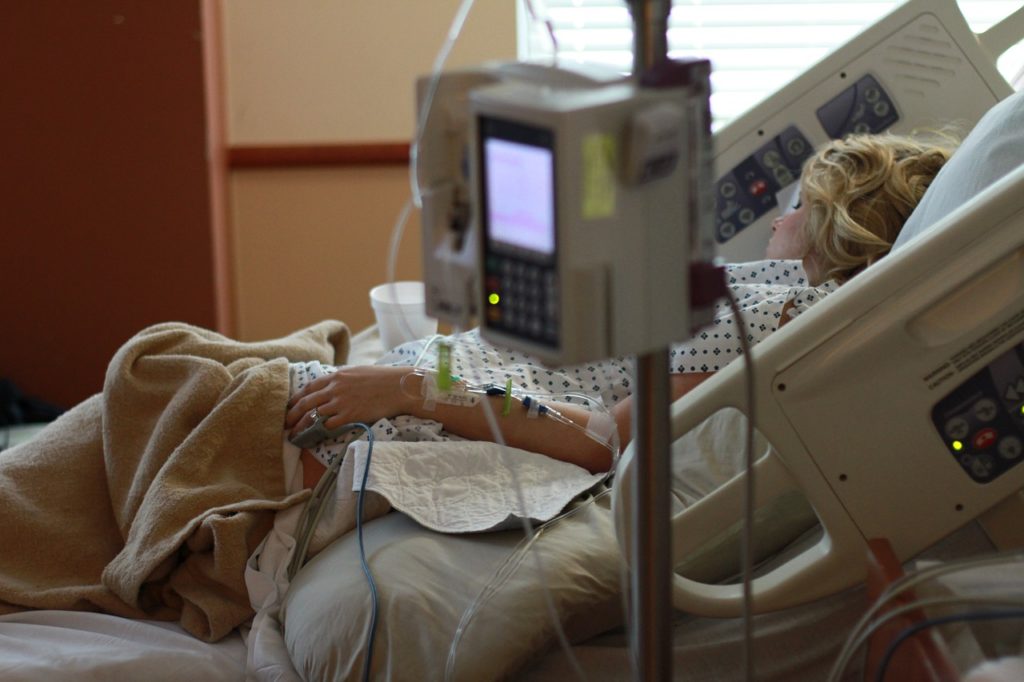
No one ever wants to hear that they have a critical illness because critical illnesses are those such as cancer, which often involve life-threatening implications to a patient. Since October is National Critical Illness Awareness Month, we should all take a moment to reflect on the critical care provided by medical professionals and by senior home care personnel who assist patients with critical care. In Hernando and elsewhere around the U.S., critical care is one of the most important kinds of personal service a patient can receive, either while undergoing some critical illness, or in the immediate aftermath of it. Here are five ways that your outcomes can be improved after critical care.
Early mobility
Research has shown conclusively that following a critical care situation, it is not only feasible but absolutely safe and highly desirable for the senior patient to be urged into mobile functions as soon as possible. It is known that as many as one-third to one-half of all critical care patients will develop some form of long-term neurocognitive impairments. This makes it very desirable to build in a program of mobility and physical therapy soon after critical care so that whatever kind of impairment does set in, can be minimized and dealt with in the most effective manner. The longer the stay in an ICU setting, the more pronounced will be the neurocognitive impairment, thus the more desirable is early mobility.
Self-help manuals
Many medical facilities, especially the critical care area of them, will issue self-help manuals to patients who have been in critical care for a period of time. The purpose of these manuals is to provide medical information to the patient, which helps them cope better with everyday life activities following intensive care. Much of the information has to do with health information and how a patient can best maintain their own health through making good choices, staying as active as possible, and paying attention to the advice of medical personnel, as well as in-home caretakers.
ICU diaries
In the aftermath of a critical illness, keeping a diary has been shown to be an effective way of improving a patient’s psychological attitude. This being the case, the more positive frame of mind that a patient has, the better their overall quality of life tends to be. Someone who simply abandons hope after a stay in the ICU is much more likely to slip into depression, and then physical health will probably become degraded right along with mental health. The simple act of keeping a diary encourages a much more upbeat approach to life, and it unconsciously forces the diarist to see the more positive side of life, because he/she has to write about it.
Neurocognitive rehabilitation
This form of treatment combines a number of different strategies which are intended to help improve a patient’s quality of life. The various strategies will generally address motor skills, language skills and recognition, cognitive skills, and the psychological impairments which can emerge following a patient’s stay in a critical care facility. Combined, these treatments aim at extending the brain’s ability to concentrate and focus on subjects for a prolonged period of time.
Ultimately, the intent is to achieve improvement in auditory recognition, visual processing, and the ability to remember things for a longer period of time. Neurocognitive rehabilitation has been used in the past to help restore patients’ neurological and cognitive capabilities, and it has shown promise in achieving such restorations. Scientists and medical professionals agree that more research is needed in this area so that better and more consistent results can be achieved.
Family caregivers
It should come as no surprise that one of the most effective ways of improving outcomes after critical care is by having family members involved with the recovery of a patient. Since a certain amount of disorientation invariably follows a critical care period, it can be tremendously helpful for a patient to have loved ones and familiar faces in the environment afterward.
Without such friendly faces nearby, many patients feel even more disoriented, and cannot understand exactly where they are, nor where all the people they once knew have disappeared to. Generally speaking, family caregivers will provide the best care for a post-critical care patient, simply because they are a blood relation, and they have the strongest vested interest in helping the patient recover as much as possible.
It’s very important for the psychological health of a critical care patient that he/she has access to close family members and loved ones because that provides a sense of warmth, security, and comfort. It gives them a reference point in a world which has been fundamentally disrupted, and it can help them make some kind of sense out of what is happening to them. For the most part, family caregivers will also generally be the most tolerant and the most forgiving of any eccentricities exhibited by the post-critical care patient, so there will be less tension between patient and caregiver.
